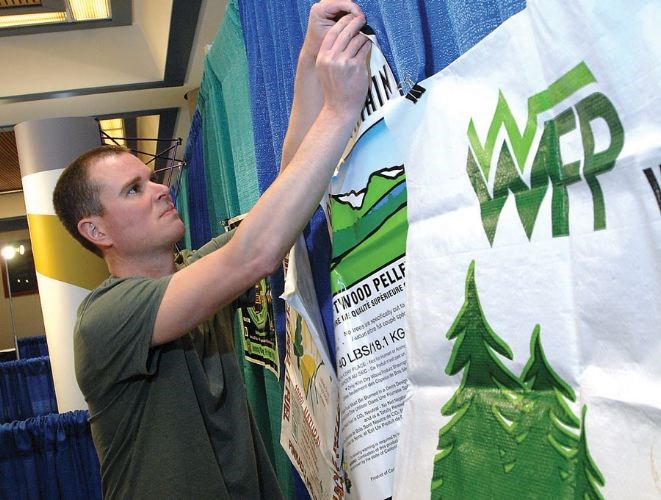COFI is back because the forest industry is back. More than 500 people - about two thirds of them from outside of Prince George - are converging here today and Friday for the first full-schedule Council of Forest Industries conference since 2008.
COFI never actually folded nor did the industry stop making lumber during the economic downturn, but officials with the industry advocacy group said forestry has definitely come back to financial health.
"We were in a deep depression over about five years," said COFI's board chair Nick Arkle of Gorman Brothers Lumber Ltd. based in the Okanagan. "Our industry tends to lead into recessions and we also tend to lead out...It has been the toughest five years I've ever seen in my 35 years in the industry. But the industry has gotten itself back into balance. A rationalization took place. There is a whole new forest industry now but one that never stopped investing through those five years. We knew eventually we would come out of it. There is nothing like a recession to sharpen your wits as a business."
COFI's acting CEO Doug Routledge said the buy-in of 500 delegates is a far distance from their peak of 1,400 in the early 2000s but they had to cap the exhibitor booths at 32 and leave several on a wait list.
The speakers' list is full of field experts and policy insiders. Both Premier Christy Clark and opposition leader Adrian Dix have slots on the agenda, and the panel discussions are hand picked on the influence of veteran COFI members seeking even more knowledge about their modernizing sector.
"We see some basic building blocks, moving forward," said Routledge. "In making this agenda, we tried to mimic the elements of success we are seeing within the industry itself, right now."
The general topics getting major spotlight are:
- Market and product diversity;
- Forest sustainability;
- Forest sector jobs;
- Workplace safety;
- Industry competitiveness.
While all these topics are heavily on the minds of industry players across the forestry board, Arkle said the jobs component - having the skilled workers to fill those positions, from the harvesting crews through to the lumber delivery personnel - is probably the biggest concern.
"If you sat down with CEOs five years ago, the challenge was markets. Now it is timber supply and skilled labour, and that is not just a forestry issue," he said. "This is a fantastic time to come out of school with a trade, looking for work. Our concern within the industry is, for the past 10 years or more, kids have not been encouraged to look at us as a career choice. A lot of students out there are looking at what to do with their careers [and forestry has to sell itself] to those people."
Arkle said the forest sector in general has learned a lot of humility throughout the global financial crisis, but also invented new ways of surviving, discovered new products, and new markets opened up that want those products. Now, those companies left standing are brimming with pride and eager to engage in the modern industry.
Routledge said anyone who doubts the comeback just has to stroll through the Prince George Civic Centre anytime today or tomorrow and feel the buzz.
"The two key downtown hotels are full, the restaurants are going to have a really good time in the next couple of days, a lot of delegates are also booking extra days in Prince George to do other business outside of the conference schedule," Routledge said. "We are not in a perfect state and we know it, but we are healthier now than we have been in a long time and there are strong signs that this will go on for a prolonged period."


